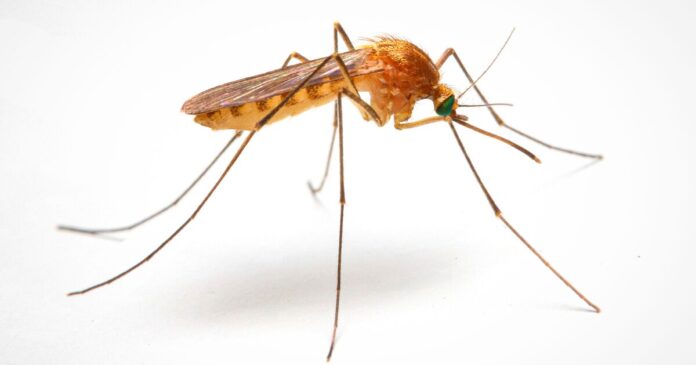Mosquitoes play a crucial role in spreading diseases like malaria, but recent research has discovered a way to use these pests to distribute vaccines through mosquito bites. In human trials, these mosquito-borne vaccines showed an effectiveness of around 90%.
It’s a shift in perspective; instead of viewing mosquitoes as nuisances that make us itch and sick, the research team saw them as natural vaccine carriers utilizing millions of years of evolution to deliver vaccines to entire populations with regular booster shots. Surprisingly, the mosquitoes themselves did not require any modifications.
Malaria’s main culprit: A single-celled parasite
The research team from the London School of Hygiene and Tropical Medicine focused on the Plasmodium falciparum parasite, known as the deadliest parasite to humans. These parasites hitch a ride with female Anopheles mosquitoes and hide in the salivary glands, alongside the mosquitoes’ natural enzymes.
Public Domain
When bitten, up to 200 P. falciparum parasites enter the bloodstream, multiplying and causing malaria symptoms. Malaria remains a significant issue, with millions of cases and deaths reported globally.
Swords to plowshares: Modified parasites become vaccines against their own kind
The London team explored genetically modifying the P. falciparum parasite to act as a vaccine instead of a disease vector. Their approach allowed the parasite to behave normally until it reached the human liver cells, where it triggered an immune response without causing infection.

Human testing: no thanks
A group of volunteers participated in testing these organic vaccines. The results showed the safety and efficacy of the approach, with modified parasites reducing the risk of infection significantly.
Where to from here?
If larger trials prove successful, mosquito bites could be used for mass vaccine distribution without the need for complex infrastructure. While challenges exist, this innovative approach offers hope in the fight against malaria.
Source: Nature






